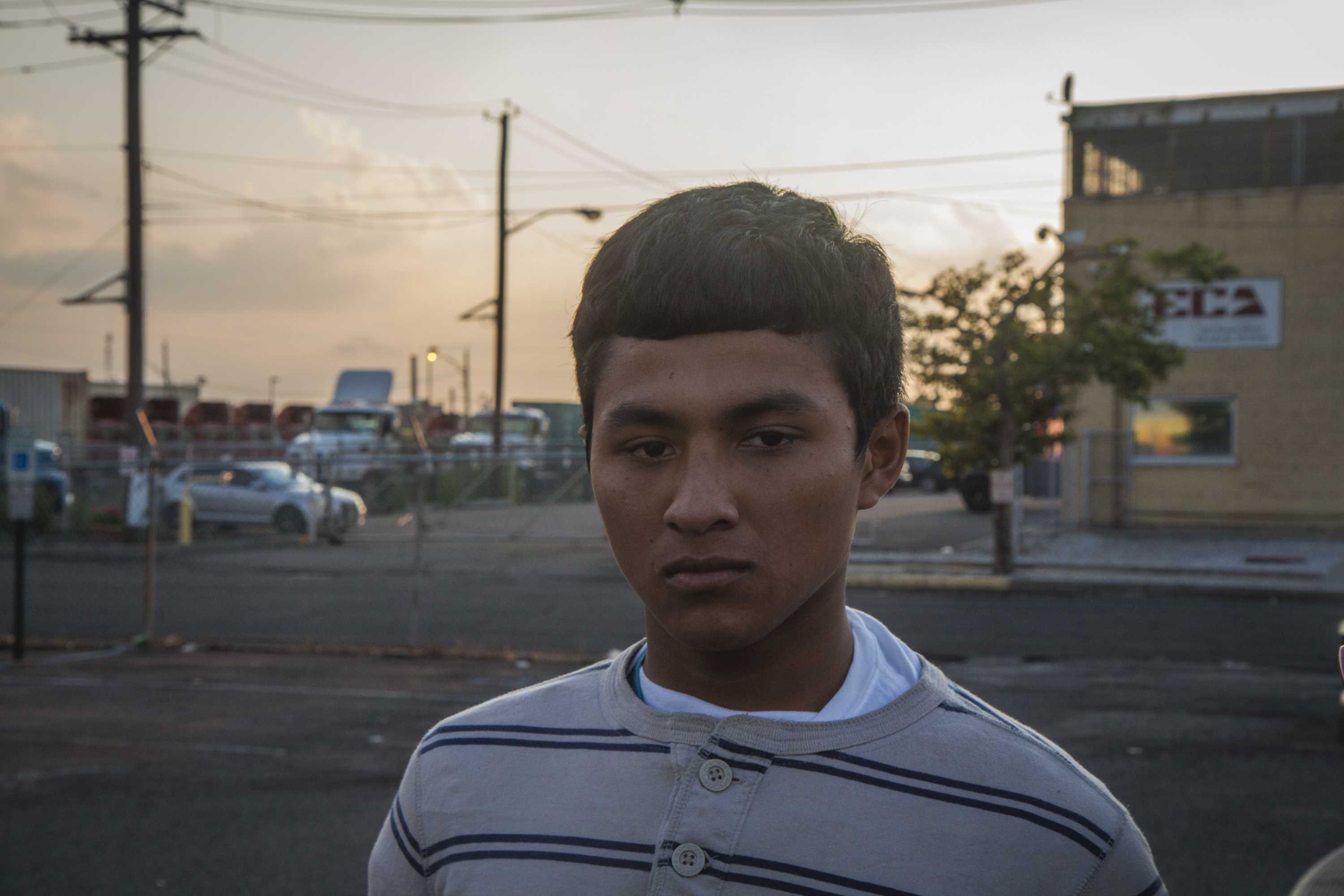A week after her 18th birthday, Marta lay in bed and scrolled through her cell phone. Barefoot and wearing a flannel shirt, she seemed like a typical teenager lounging on a warm Sunday afternoon.
Only the thick tracking device that bulged from the ankle of her skinny jeans hinted at the challenges she has faced in the United States and her native Guatemala.
On the morning of her 18th birthday, Marta, an asylum-seeker, arrived at the Lighthouse, a brick home in Jersey City that is operated by the organization First Friends of New Jersey and New York and the Church of the Incarnation, which owns the building. Marta, whose name has been changed for this story, came to the home from a residential facility for children where she had been placed by the U.S. Office of Refugee Resettlement.
First Friends was eager to facilitate her release because the milestone birthday could have been a painful one for Marta, who made the dangerous trip through Mexico after her aunt was murdered and the killers started threatening her. Like many young people who age out of the refugee office’s custody, she would have spent her 18th birthday shackled en route to an adult jail that houses detained immigrants.
Since 2014, the percentage of children who age out of ORR custody has more than doubled. In a statement, the agency said that 2.4 percent of children in its custody aged out in the 2017 fiscal year, compared to just 1 percent in 2014. By law, the agency said, it must transfer the young people to Immigration and Customs Enforcement custody.
Before Donald Trump took office, ORR successfully united most children with sponsors before they turned 18, said First Friends Program Director Sally Pillay. Now, Pillay said, sponsors who lack documentation often hesitate to come forward and ORR delays placing children with sponsors, which forces many children to age out of ORR custody and into adult detention.
According to the refugee office, there are about 10,300 beds for unaccompanied children in the agency’s network of shelters, which would mean more than 245 kids aged out and entered adult detention facilities last year.
The abrupt change can also jeopardize a young person’s ability to maintain legal representation, especially if transferred to facilities in other states, said Wendy Young, the executive director of Kids In Need of Defense, which provides legal services to unaccompanied children nationwide. Unaccompanied children are deemed to have special protections and are afforded special care in the refugee office’s custody, Young said, “but if you turn 18, it’s, ‘Happy birthday, we’re going to transfer you to an adult facility.’”
Advocates attribute the increase to aggressive practices by ICE and ORR. They say that the refugee office has deliberately delayed unifying children with sponsors and that ICE violates federal law — and its own handbook guidelines — by automatically transferring young people into detention without considering the “least restrictive setting that is in the best interests of the child,” including programs that offer alternatives to detention.
In March, the National Immigrant Justice Center filed a lawsuit against ICE, arguing that ICE violated federal law by locking two 18-year olds in adult detention without considering the “least restrictive” alternatives. In April, the court instructed ICE to consider other placements.
In February, the New York Civil Liberties Union filed a class-action lawsuit on behalf of children who aged out of ORR custody. The suit states that the refugee agency has deliberately delayed its transfers to sponsors, thus “trapping these children in highly restrictive government-controlled facilities.”
The class-action lawsuit names as a defendant the president of Children’s Village, one of the juvenile facilities that contracts with ORR to shelter children who have yet to be united with a sponsor. Similar sites in the New York City-area include Cayuga Center in the Bronx and Rising Ground’s Passage of Hope program in Yonkers.
A Children’s Village spokesperson directed all questions to ORR. No other juvenile facility responded to a request for comment.
These facilities would also likely be the destination of children who are separated from their families at the border. The Trump administration recently began criminally prosecuting all immigrants who cross the border illegally. When they are transferred to federal courts, parents are separated from their children who are placed in the custody of ORR and treated as unaccompanied children.
Though the tracking device strapped to her ankle prevents Marta from leaving New Jersey and moving in with a family member in another state, she nevertheless managed to avoid adult detention thanks to First Friends’ intervention. The organization temporarily houses undocumented immigrants released from detention centers at the Lighthouse and focuses special attention on children who are about to age out of ORR custody.
A week after Marta’s birthday, Micheline, a former asylum-seeker from Burkina Faso and a student at Hudson County Community College in Jersey City, knocked on the open door frame.
“I’m happy here,” Marta said in Spanish after Micheline greeted her. “I feel comfortable and everyone has been very kind to me.”
The day Marta moved into the Lighthouse, Ilboudo bought her a birthday cake and gathered First Friends staff and residents — nine people from nine different countries — to sing Happy Birthday. Ilboudo also prepares meals for new arrivals and gives them advice about cooking, shopping and navigating Jersey City’s bus system.
Over the past few months, the Lighthouse has hosted five children just prior to their 18th birthdays, including one young man who fled Honduras after gang members recruited him and cut off one of his fingers when he refused to enlist. He arrived at the Lighthouse in December and has applied for asylum. They have also hosted five 18-year-olds who were released from immigration detention on bond late at night and needed a place to crash before traveling to reunite with family in California, Indiana and Florida.
“Because of the relationships we had built in New York and New Jersey, we started getting more referrals for children aging out,” Pillay said. “As word goes around, we’ve been bombarded with referrals.”
Despite First Friends’ intervening on behalf of some young people, ICE continues to transfer others, including an 18-year-old mother separated from her a 2-year-old child, into adult jail.
Pillay said their steep path to freedom depends on their limited ability to access legal representation from within adult detention facilities, like the razor-wire-encrusted Hudson County Correctional Facility that looms right next door to the First Friends headquarters in Kearny, NJ.
“If you’re there alone, you can fall through the cracks,” she said.
In addition to provoking trauma in the young people who are transferred to adult jails, ICE’s “cruel birthday present” disrupts schools and communities, said Catholic Charities attorney Anthony Enriquez, who represents children in residential facilities.
“[The child] is someone who has come here seeking protection, seeking help, seeking mercy,” Enriquez said. “Then they’re placed in a jumpsuit and shackles and put behind bars. Not that they’ve done anything differently.”
The photograph accompanying this article is part of a series by Jenny Brover, a New York City area photographer. Follow her work at www.jennybrover.com or on Instagram at @jennybrover.














